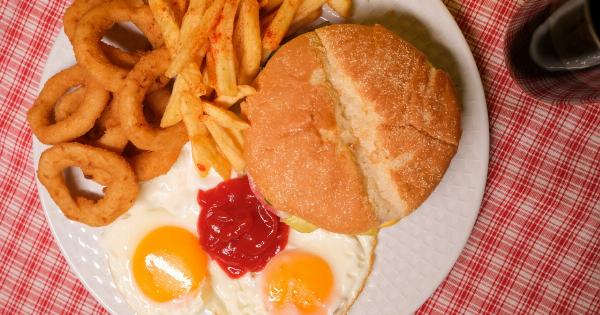When you’re pregnant, it’s important to be mindful of what you eat and drink. While it may be tempting to reach for sugary soft drinks to quench your thirst, you may be wondering if it’s safe to do so.
Below, we’ll explore the possible effects that soft drinks can have on your pregnancy and provide tips for healthier alternatives.
What are Soft Drinks?
Soft drinks, also known as soda or carbonated beverages, are typically made from carbonated water, high fructose corn syrup, and artificial flavorings.
While they may provide a quick burst of energy, soft drinks are not known for their nutritional value. In fact, they are often associated with health issues such as obesity, diabetes, and dental cavities.
The Effects of Soft Drinks During Pregnancy
While there is no specific research regarding the effects of soft drinks on fetal development during pregnancy, some studies have shown potential negative impacts of consuming sweetened beverages.
Increased intake of sweetened beverages has been linked to a higher risk of gestational diabetes, premature delivery, and overweight babies.
Moreover, soft drinks are often high in caffeine, which can cross the placenta and affect the developing fetus. High levels of caffeine consumption during pregnancy have been linked to low birth weight and increased risk of miscarriage.
Alternatives to Soft Drinks During Pregnancy
If you’re looking for healthier alternatives to soft drinks during pregnancy, consider the following:.
Water
Staying hydrated is essential during pregnancy. Drinking water can help flush out toxins and ensure that your body and the baby are receiving enough fluids.
Carry a refillable water bottle with you at all times to ensure that you have access to water wherever you go. Aim for at least 8 to 10 glasses a day.
Herbal Teas
Herbal teas such as chamomile, ginger, and peppermint are a great alternative to soft drinks. Not only are they hydrating, but they can also help ease nausea, improve digestion, and boost immunity.
However, be sure to drink teas in moderation as some herbal teas can have adverse effects during pregnancy.
Fruit Juices
Fruit juices are a great source of vitamins and antioxidants. However, it’s important to choose 100% fruit juice as some fruit juices can be high in sugar and preservatives.
Dilute fruit juices with water to reduce the sugar content and opt for freshly squeezed juices over store-bought ones.
Milk
Milk is a great source of calcium, protein, and vitamins. Drinking milk can help strengthen bones, teeth, and muscles, making it especially important during pregnancy.
It’s recommended that pregnant women drink at least 2-3 glasses of milk each day.
Smoothies
Smoothies made from fresh fruits and vegetables are a great way to obtain essential vitamins and nutrients. Ensure that your smoothies do not contain added sugar or artificial sweeteners.
Be aware that some smoothies may contain high levels of caffeine or herbal supplements, which can have adverse effects during pregnancy.
In Conclusion
While it can be challenging to resist the sweetness of soft drinks during pregnancy, it’s important to be mindful of the potential negative impacts on fetal development.
Opt for healthier alternatives such as water, herbal teas, fruit juices, milk, and smoothies that can provide essential vitamins and nutrients that you and your baby need.




























